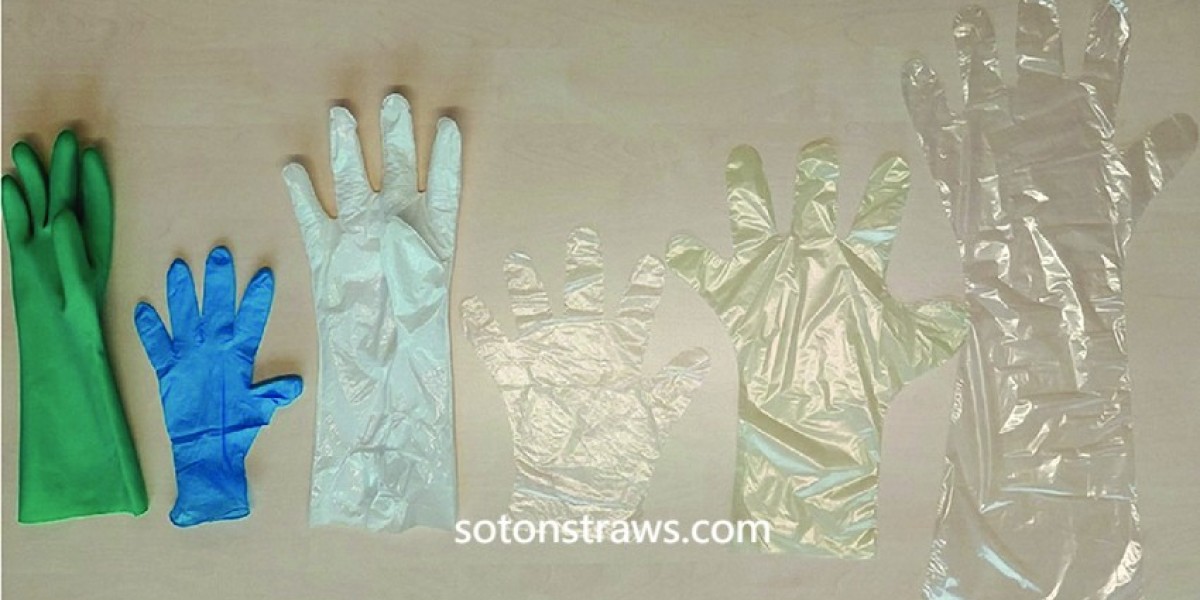As global industries pivot toward climate resilience and health-centric solutions, Disposble compostable PE gloves Manufacturers are emerging as unsung heroes in the fight against plastic pollution. With single-use plastics facing unprecedented bans worldwide—such as China’s stringent 2025 “zero-waste” mandates and the EU’s circular economy directives—these manufacturers are redefining hygiene standards by merging safety with sustainability. Their products, designed to decompose within months rather than centuries, address urgent environmental challenges while catering to booming food service and healthcare sectors.
The innovation driving this shift lies in advanced material science. Traditional PE gloves, notorious for contributing to microplastic pollution, are being replaced by compostable alternatives made from plant-based polymers like PLA (polylactic acid) and PBAT (polybutylene adipate terephthalate). These materials, derived from cornstarch or sugarcane, break down into water and biomass under industrial composting conditions, leaving no toxic residues. Leading disposable compostable PE gloves manufacturers now collaborate with agricultural waste recycling programs, transforming crop residues into durable, heat-resistant gloves ideal for food handling during extreme weather events.
Health compliance remains a cornerstone of their appeal. Post-pandemic hygiene norms demand disposable solutions, but modern consumers reject trade-offs between safety and environmental responsibility. Compostable PE gloves meet stringent certifications such as FDA 21 CFR and EU 1935/2004/EC, ensuring they resist chemical leaching and microbial contamination. Cities like Shanghai and Berlin are piloting urban composting networks where used gloves are collected, processed, and returned to farms as nutrient-rich soil additives—a closed-loop system that aligns with Gen Z’s demand for transparency and accountability.
The circular economy is further revolutionizing production. Forward-thinking manufacturers are adopting RFID-tagged glove leasing models, where healthcare facilities or restaurants sanitize and reuse gloves multiple times before composting. Others integrate blockchain traceability to verify materials from sustainable sources, such as FSC-certified forests or regenerative farms. These strategies not only reduce waste but also cut costs for businesses navigating rising plastic taxes.
Looking ahead, smart technologies are set to elevate functionality. Prototypes with embedded pH sensors can now detect food spoilage or contamination, offering real-time safety alerts—a breakthrough for hospitals and catering services. Meanwhile, algae-based dyes and customizable designs cater to branding trends, turning gloves into viral marketing tools.
In a world where every choice impacts the planet, disposable compostable PE gloves manufacturers are proving that hygiene and sustainability can coexist. Their work transcends mere product development—it’s a blueprint for a future where human health and environmental stewardship are inextricably linked.
sotonstraws.com



